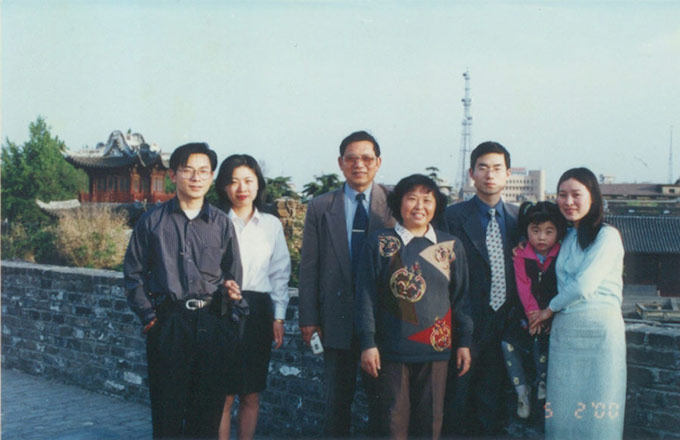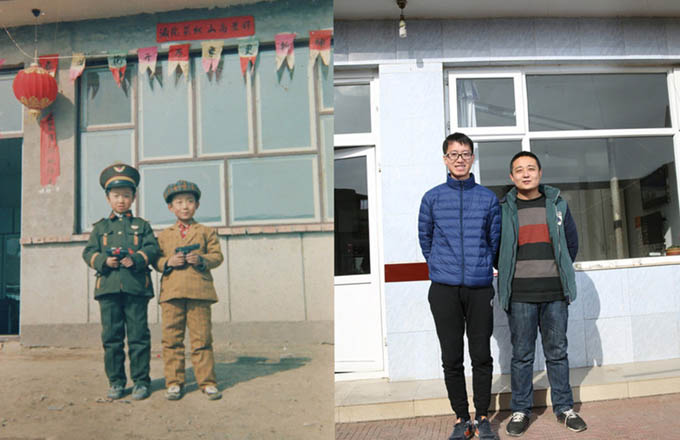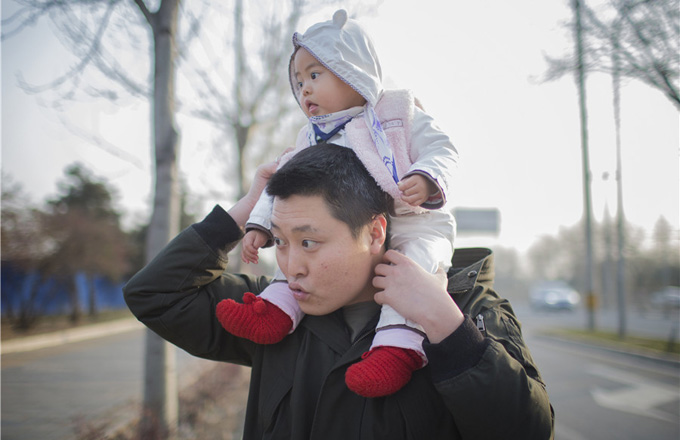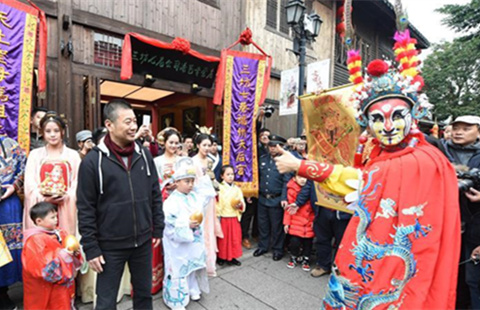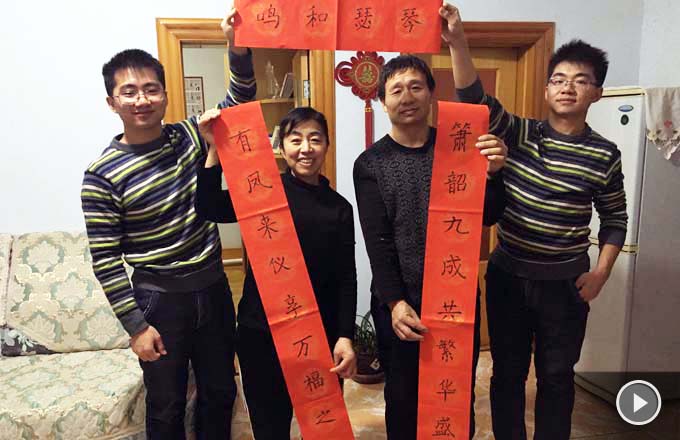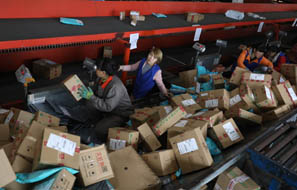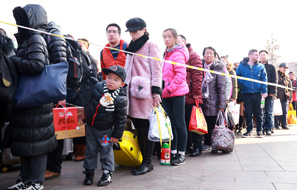Building a bamboo bicycle business
|
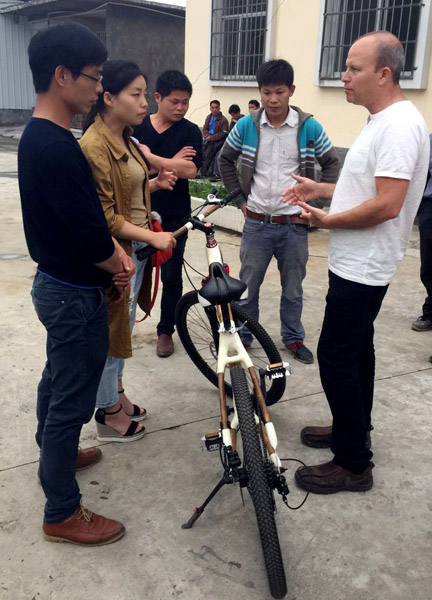 Tan Jiangyong (left) talks with a foreign buyer about bamboo bikes.Provided To China Daily |
Though bamboo craft is commonplace in Tan Jiang-yong's home county, none took the 28-year-old seriously when he returned home from university and began making bicycles out of the plant.
He was inspired to try building such a contraption himself after a friend showed him a photo of a bamboo bike online shortly after he graduated in 2011.
"It looked so unique and stylish, and I just couldn't wait to ride it," said Tan.
"The only problem was, how could I get my hands on one?"
After approaching two factories in China that work with bamboo, the clothing design major found their products wanting, so he decided to build one himself.
"My idea was to have a bike with a flawless bamboo frame that was stable and moisture-proof, built without using any glue or screws," he said.
"Bamboo grows everywhere in my birthplace, Hechi, so I thought maybe I should return home to take my shot."
Tan retreated into the karst landscape of Huanjiang Maonan autonomous county near his home in South China's Guangxi Zhuang autonomous region, built himself a workshop out of bamboo, and started on the project.
After several months, he finished his first creation and posted a picture of it on an online bicycle enthusiast forum.
It attracted the attention of a Swedish student, who offered to buy the two-wheeler for 4,500 yuan ($660).
"The buyer told me that environmental friendly products are extremely popular in Sweden. I remember thinking this was a good chance to try out my product in the overseas market," Tan said.
To his surprise, the cold of Northern Europe caused cracks to appear in the bike's frame.
"At first I was quite frustrated, but later I thought 'maybe these setbacks can make the bike better'," Tan said.
Following an exhaustive search, a more durable species of local bamboo was found that Tan says is as hard as metal. He also started using resin to seal the joints on his bikes, which improves the appearance and makes them more weatherproof.
"I hope people will appreciate the texture of bamboo and the lingering smell of nature while they ride my bikes," he said.
"Making a bespoke bike is quite time-consuming; at first it took me 10 days to produce one bike, but that's been shortened to two days now as I have eight employees to help."
In March last year, Tan established his own company to produce bamboo handicrafts. He has sold more than 600 bikes since the first one was bought in 2014, with many exported to countries such as Israel, Denmark and Singapore.
His success encouraged his fellow villagers, many of whom were farmers struggling below the poverty line. He helped 15 farmers to start an agricultural cooperative that produces bamboo handicrafts.
"I didn't mean to make a career out of this business, but it turned out to be a good way to promote the culture of the Maonan people, and more importantly it helps my fellow villagers out," Tan said.




